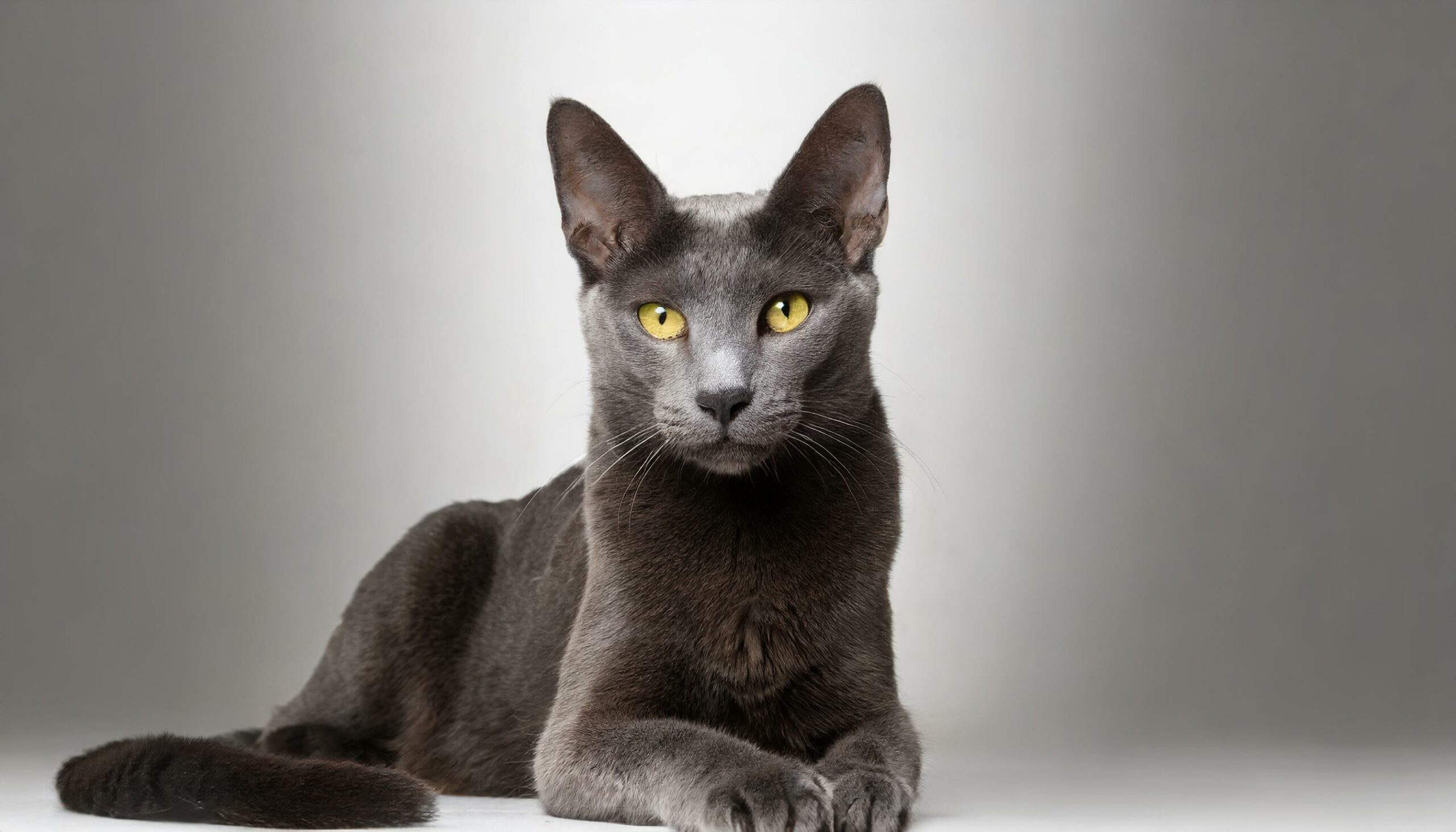The Korat, with its shimmering silver-blue coat and striking green eyes, is a rare and ancient breed that originates from Thailand. Esteemed as a symbol of good fortune, the Korat is revered not only for its beauty but also for its affectionate nature and keen intelligence. Known as the “Si-Sawat” cat in its native land, the breed carries a rich history and cultural significance, often given as a traditional gift to bring prosperity and happiness. This profile delves into the Korat’s origins, physical characteristics, temperament, care needs, and its role as a cherished and graceful member of the family.
Origins and History
The Korat’s history in Thailand stretches back centuries, with its presence documented in “The Cat-Book Poems” believed to have been written in the Ayutthaya Kingdom of Siam between the 14th and 18th centuries. The breed was traditionally considered a bringer of good luck, often given in pairs to brides on their wedding day to ensure a prosperous marriage. The Korat was introduced to the Western world in the mid-20th century and has since garnered a dedicated following, charmed by its elegant appearance and endearing personality. Despite its growing popularity, the Korat remains a relatively rare breed outside of Thailand.
Physical Characteristics
The Korat is a medium-sized cat, typically weighing between 6 to 10 pounds, characterized by its heart-shaped face, large expressive eyes, and a muscular yet slender body. The breed’s most distinctive feature is its short, dense coat that shines with a silver-blue sheen, closely adhering to the body and highlighting its graceful contours. The Korat’s eyes are another captivating trait, ranging from peridot green to luminous amber, which deepen in color with age. Their overall appearance exudes an aura of elegance and strength, complemented by their poised and alert demeanor.
Temperament and Behavior
Korats are known for their affectionate, loyal, and gentle temperament. They form deep bonds with their families, displaying a preference for being involved in every aspect of their human companions’ lives. Korats are intelligent and curious, enjoying interactive play and mental stimulation. Despite their sociable nature, they can be reserved around strangers, often choosing to observe from a distance before warming up. The breed is notably vocal, using a range of soft chirps and purrs to communicate with their loved ones. Korats are well-suited to households seeking an engaging and loving pet that thrives on attention and companionship.
Care and Health
The Korat’s short coat is relatively low-maintenance, requiring only occasional brushing to remove loose hair and maintain its lustrous appearance. They are an active breed that benefits from regular play and exercise to stay fit and healthy. Korats are generally robust, but responsible breeding practices are crucial to avoid genetic health issues common in purebreds, including heart conditions and a predisposition to certain neuromuscular conditions. Providing a balanced diet, routine veterinary care, and a stimulating environment are essential for their well-being.
The Korat in the Family
The Korat makes a wonderful addition to families, singles, and seniors alike, thanks to its adaptable and affectionate nature. Their moderate exercise needs and sociable disposition make them suitable for various living environments, including apartments. The breed’s gentle nature and intelligence make it a delightful companion for children and other pets, provided they are introduced properly. For those captivated by the Korat’s rich heritage, stunning appearance, and loving temperament, this breed offers an enriching and affectionate companionship.
In conclusion, the Korat stands as a breed of ancient lineage, captivating beauty, and endearing character. With its origins steeped in Thai tradition and its status as a cherished companion, the Korat continues to enchant cat lovers around the globe. For those willing to provide the necessary care, love, and engagement this breed craves, the Korat offers a rewarding and mystical companionship, serving as a devoted friend and an integral part of the family.
